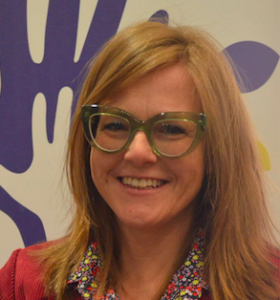
(Over) Planning for Sabbatical
Like so many others during the pandemic I picked up a new hobby. Breadmaking was already claimed by two others in my family, so I decided to turn to houseplants. Gardening has always been therapeutic for me, so I sensed I would like getting my hands dirty indoors as well, and I had always found beauty and a sense of peace in homes filled with a variety of plants.
I began pretty haphazardly, just buying plants I found on sale and watering them when they looked bad. I soon learned that water isn’t always the best solution for a dying plant. There is such a thing as overwatering, and I learned that lesson the hard way—by killing a lot of plants.
It probably took me a year or so to learn the needs of different plants; for example, how much sun, humidity, and water they require. Now almost four years into my new craft, I rarely kill a plant. My eight-year-old daughter even recently declared: “Mommy, it’s starting to look like a jungle in here!” That’s when I knew I was getting good and that I had achieved the aesthetic I was going for.
I’ve learned a lot of good lessons in becoming a plant person. In fact, I was reminded of my deleterious overwatering the other day, when I was making plans for my sabbatical this coming fall.
This sabbatical will be the first one I’ve ever had the luxury to take, and to say that I’m looking forward to it would be an understatement. I’ve been teaching for fourteen years, and for the last two years I have been increasingly involved in administration.
My fairly new administrative work has not left me much time for research. And when I think of that area of my academic life, I think of a wilted, dried out plant. I’ve pulled as much life out of my previous research as possible, and it’s parched.
Always an overachiever, I know my tendency will be to over-plan for and overschedule my sabbatical time. I intend to write a new book. I want to read, research, and write; and I want to travel in Europe for my research. I also want to take pictures and videos during my travels for my classes.
When I was charting this all out the other day, I was overwhelmed. My (too-high) expectations left me feeling panicky. I also started feeling the pressure of thoughts like: “Given the landscape of higher education, this might be your first and last sabbatical.” In short, I was setting myself up for burnout!
Of course, this defeats the point of sabbatical. Isn’t it supposed to be a magical time in which one can finally achieve the sweet balance of rest and productivity?
But how does one achieve this? I suppose the answer is different for everyone. It’s like caring for the different needs of different plants.
Taking a tip again from my plants, I reflected on the following questions:
1) What do I really need right now?
What I need is some time to slow down and rest. I need some time to breathe, to re-center myself. I need to establish a new workplace (away from my institutional office), where I can be free from distractions. I need an easy routine with the time to be creative and to explore new ideas.
2) What do I really want?
What I want is to have some new life breathed into my intellectual project. I want to use the privilege of this precious time wisely. A semester free of classes and meetings provides me with the opportunity to travel for my research. I’ve always wanted to visit the monastic sites and places in Germany of the medieval writers who I study, and to talk and pray with the contemporary nuns that currently live there. Now I can!
I also want to get several chapters of a new book written. This “want” competes with the other. Of course, planning for a trip and taking it will hinder my writing productivity, at least in the short term. I’ve had to come to grips with that fact, and remind myself that I can write anywhere and anytime. I can get some writing done on sabbatical, and continue the rest later.
3) What will sustain me?
What I need for my scholarly labor to be sustained, during this sabbatical and going forward from it, is for it to engage my intellectual passions. My last book was published four years ago. The world has changed since then, and so have I. One of the first things I need to do before starting in on a new research project is to give myself some time to reflect on some perennial questions. I have bookmarked Dr. Nancy Lynne Westfield’s blog “Articulating Your Intellectual Project,” which contains questions like:
What is the intersection of your gifts/talents with the mighty needs of the world?
At the end of your life, when you look back over your long and illustrative career, to what did you say yes?
I plan to use the questions she provides therein to help encourage and bring about clarity for the focus of my project and its intent.
And then I plan to get to work (at a restful pace)!
Leave a Reply